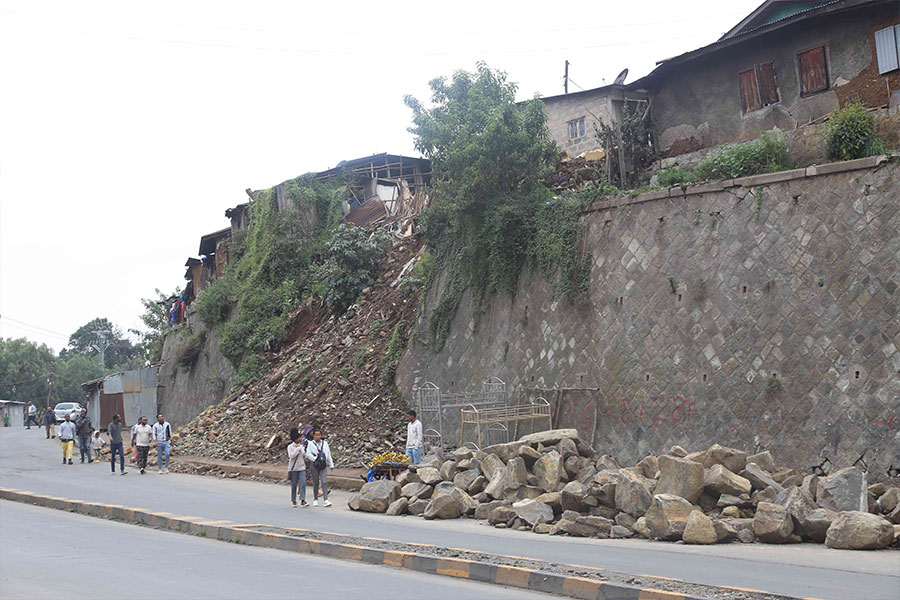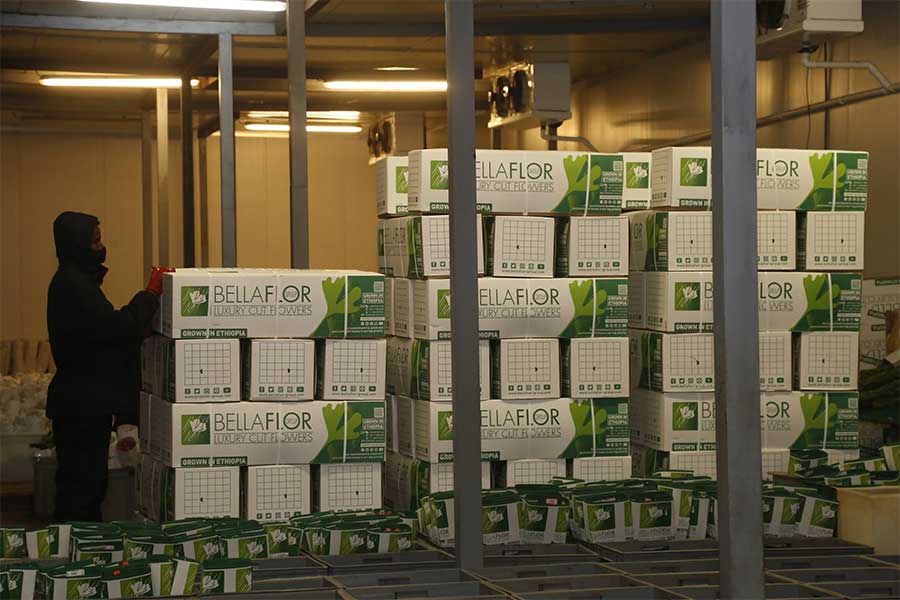
In an ambitious bid to boost municipal coffers, Addis Abeba City Revenues Bureau officials have outlined plans to collect up to nine billion from property tax in the forthcoming budget year, marking a dramatic leap from last year’s paltry 47.5 million Br.
Adem Nuri, director of the Bureau, has issued directives to all district revenue bureaus in the capital, advising them to implement the adjusted rates from April onwards. The notice included a comprehensive study on property valuation methods by specialists from the project office of the City Finance Bureau. The experts were charged with the task of accurately gauging property values, which are deemed essential for efficient tax assessment.
This shift in strategy comes after decades of outdated tax rates, which saw nearly 82,000 taxpayers in the city pay less than 100 Br each, contributing a mere 0.8pc to the total tax revenues collected last year, according to Wondimagegn Kassaye, head of tax assessment at the Bureau.
In comparison, the Kenyan capital Nairobi gleans approximately 20pc of its total revenues from property tax, a ratio Addis Abeba seemingly hopes to emulate. Wondimagegn argues that this stark disparity showcases the underutilisation of property tax as a revenue source in Addis Abeba.
The newly recalibrated tax rates take into account various factors such as construction materials used, the purpose of the property, and its location. Significantly, the revised tax rates will now apply to condominium houses, which had been exempted from the past tax regime.
Wondimagegn states: “Our previous estimations did not factor in condominium housing, which created a gap in our revenue collection.”
A residential condominium unit with 54sqm size will have its owner subjected to an annual property tax of 7,103.7 Br.
This overhaul aligns with the federal government’s broader tax reform agenda. A nationwide property tax bill has been in the pipeline since last year. Regional states were mandated to implement this reform following a resolution passed by legislative houses in a joint session held in January.
About 182,000 taxpayers in Addis Abeba are expected to report their tax dues. The City Landholding & Information Agency and its Land Development & Management Bureau are poised to compile homeowner's records to facilitate the tax assessment process.
“We`ve already dispatched 1,600 files and rates to the revenue bureaus," noted Gifawosen Desisa, the Addis Ababa Landholding & Information Agency director. "It includes a range of properties such as real estate, apartments and condominium units.”
The reform affects almost a million homeowners in Addis Abeba, who are expected to settle their annual property taxes between July and February. However, the Bureau has offered a temporary reprieve this year, slashing the tax estimation by half.
“Taxpayers might not be ready to handle the sudden increase in their tax obligations,” Asmamaw Mulugeta, project office coordinator, told Fortune.
Despite this effort to buffer the transition, property owners like Fantahun Ali are yet to understand the full implications of the tax adjustments. According to Fantahun, owner of a two-bedroom condominium at the Yeka Abado site, the north-eastern part of the city, the administration's attempt to raise public awareness about the new rates seems to have been insufficient.
Experts in the field of tax policy have generally hailed this initiative.
Tadesse Lencho, a prominent scholar of Ethiopian tax policy and legislation and managing partner at Tbest Law Firm, called the move a significant step towards broadening the government's tax base.
“They've finally wakened,” he told Fortune, implying the long overdue review of Ethiopia's property tax rates.
However, Tadesse also emphasised the need to focus on rental incomes, which, according to him, had made a meagre contribution to the city's tax revenues.
Tax experts and economists agree that while the move could significantly increase the city's revenue, ensuring public acceptance and understanding of the change is crucial. This massive tax restructuring needs to be executed transparently, offering sufficient guidance and support to taxpayers to mitigate potential backlash. Notably, the new tax regime may impose additional burdens on homeowners still settling their mortgages, as the reassessed property value will likely increase their tax obligations.
Says Fantahun, who is still making 2,900 Br monthly mortgage payments on his condominium: "I'll have to be informed on the valuation to plan for extra spending," he said.
Fantahun, like many Ethiopians, is a testament to the economic challenge facing a large portion of the population as he struggles to support his family of eight on a gross monthly salary of 18,000 Br. The increased tax burden will undoubtedly squeeze many households' budgets, underscoring the authorities' need for careful communication and consideration as they implement these changes.
The City Revenues Bureau seems aware of the challenges such an overhaul poses. Acknowledging that the property tax reforms might initially prove challenging, the Bureau has resolved to cut the estimated tax in half for the upcoming year.
This shift, while monumental, is seen as a necessary evil to finance the city's growing infrastructure needs and propel Addis Abeba towards a more sustainable financial future, city officials argue.
As Ethiopia's financial hub and capital city embarks on this crucial financial restructuring journey, the outcome could set a precedent for other regional towns. It could catalyse a nationwide overhaul, sparking a much-needed revamp of the country's antiquated tax system. Despite the challenges, Addis Abeba seems poised to navigate these stormy waters, guided by the potential for long-term fiscal sustainability and growth.
It remains to be seen how the public will absorb these reforms and the impact on the city's revenues which has a budget of 100 billion Br for the current fiscal year. But what is clear is that this move reflects the federal government`s desperate need to enhance revenues through taxes – a vital step in bridging the widening budget deficit which hit four percent of the GDP this year.
PUBLISHED ON
[ VOL
, NO
]

Fortune News | Mar 30,2019

Radar | Sep 24,2022

Radar | Nov 02,2019

Fortune News | Jul 17,2022

Radar | Sep 11,2020

Fortune News | Jan 09,2021

Commentaries | Jan 29,2022

Radar | Oct 31,2020

Agenda | Mar 05,2022

Radar | Dec 05,2018

Dec 22 , 2024 . By TIZITA SHEWAFERAW
Charged with transforming colossal state-owned enterprises into modern and competitiv...

Aug 18 , 2024 . By AKSAH ITALO
Although predictable Yonas Zerihun's job in the ride-hailing service is not immune to...

Jul 28 , 2024 . By TIZITA SHEWAFERAW
Unhabitual, perhaps too many, Samuel Gebreyohannes, 38, used to occasionally enjoy a couple of beers at breakfast. However, he recently swit...

Jul 13 , 2024 . By AKSAH ITALO
Investors who rely on tractors, trucks, and field vehicles for commuting, transporting commodities, and f...

Jun 28 , 2025
Meseret Damtie, the assertive auditor general, has never been shy about naming names...

Jun 21 , 2025
A well-worn adage says, “Budget is not destiny, but it is direction.” Examining t...

Jun 14 , 2025
Yet again, the Horn of Africa is bracing for trouble. A region already frayed by wars...

Jun 7 , 2025
Few promises shine brighter in Addis Abeba than the pledge of a roof for every family...